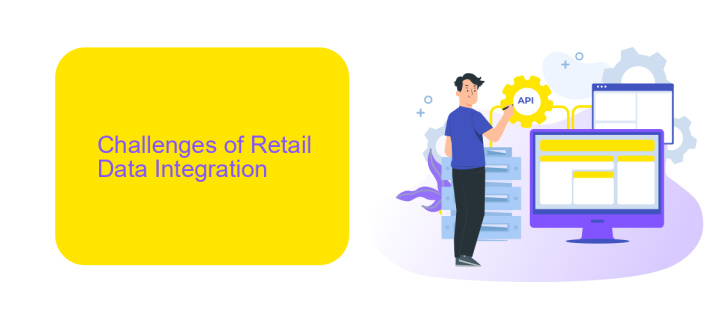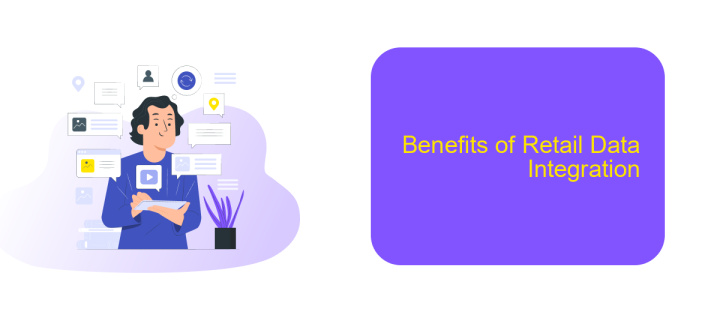Retail Data Integration
Retail data integration is revolutionizing the way businesses operate by seamlessly combining data from various sources into a unified system. This process enhances decision-making, streamlines operations, and provides a comprehensive view of customer behavior. In today’s competitive market, effective data integration is crucial for retailers aiming to optimize their strategies, improve customer experiences, and drive growth.
Retail Data Integration
Retail Data Integration is essential for modern businesses looking to streamline operations and enhance customer experiences. By integrating data from various sources, retailers can gain a comprehensive view of their operations, leading to better decision-making and optimized processes.
- Improved data accuracy and consistency
- Enhanced customer insights and personalized experiences
- Streamlined inventory management
- Increased operational efficiency
- Better demand forecasting and planning
To achieve seamless data integration, retailers can leverage services like ApiX-Drive. This platform allows businesses to easily connect and automate workflows between different systems without the need for extensive coding. By using ApiX-Drive, retailers can ensure that their data is consistently updated and synchronized across all platforms, leading to improved efficiency and more informed business decisions.
Challenges of Retail Data Integration

Retail data integration presents numerous challenges, primarily due to the diverse and fragmented nature of data sources. Retailers often operate across multiple platforms, including online stores, physical outlets, and third-party marketplaces. This diversity can lead to data silos, making it difficult to achieve a unified view of customer behavior, inventory levels, and sales trends. Additionally, the integration process must handle various data formats and structures, which can complicate data mapping and transformation efforts.
Another significant challenge is ensuring data accuracy and consistency. Discrepancies in data can arise from manual entry errors, system incompatibilities, or delayed updates, leading to unreliable insights and decision-making. To address these issues, retailers can leverage integration platforms like ApiX-Drive, which streamline the process by automating data transfers between systems. ApiX-Drive offers pre-built connectors and customizable workflows, reducing the need for extensive manual intervention and minimizing the risk of errors. By utilizing such tools, retailers can enhance their data integration efforts, ensuring a more cohesive and accurate data ecosystem.
Best Practices for Retail Data Integration

Effective retail data integration is crucial for seamless operations and informed decision-making. Implementing best practices ensures that data flows efficiently between systems, reducing errors and enhancing performance.
- Standardize Data Formats: Ensure that data from various sources conforms to a uniform format. This minimizes discrepancies and simplifies integration.
- Use Robust Integration Tools: Employ reliable tools like ApiX-Drive, which facilitate smooth data transfer between different platforms without the need for extensive coding.
- Regular Data Audits: Conduct periodic audits to verify data accuracy and integrity. This helps in identifying and rectifying issues promptly.
- Automate Processes: Leverage automation to reduce manual intervention, thereby minimizing errors and saving time.
- Ensure Data Security: Implement stringent security measures to protect sensitive data during integration processes.
By adhering to these best practices, retailers can achieve a more streamlined and efficient data integration process. This not only enhances operational efficiency but also empowers better strategic decisions, ultimately driving business growth.
Benefits of Retail Data Integration

Retail data integration offers numerous advantages that can significantly enhance the efficiency and performance of retail operations. By consolidating data from various sources, retailers can gain a comprehensive view of their business, leading to more informed decision-making and improved customer experiences.
One of the primary benefits is the ability to streamline operations. Integrated data allows for better inventory management, accurate demand forecasting, and optimized supply chain processes. This integration also facilitates seamless communication between different departments, ensuring that everyone has access to the same, up-to-date information.
- Enhanced decision-making through comprehensive data analysis
- Improved customer insights and personalized marketing strategies
- Increased operational efficiency and reduced costs
- Better inventory management and demand forecasting
- Seamless communication across departments
Services like ApiX-Drive can simplify the process of retail data integration by providing easy-to-use tools for connecting various data sources. With ApiX-Drive, retailers can automate data transfers, reduce manual errors, and ensure that all systems are synchronized in real-time. This leads to a more agile and responsive retail environment, capable of adapting quickly to market changes and customer needs.
Conclusion
Retail data integration plays a crucial role in modernizing and optimizing business operations, enabling retailers to harness the power of data. By seamlessly connecting various data sources, retailers can gain valuable insights into customer behavior, inventory management, and sales performance. This integration fosters a more responsive and agile business environment, allowing for better decision-making and enhanced customer experiences.
Tools like ApiX-Drive simplify the process of integrating diverse data sources, making it accessible even for those without extensive technical expertise. By automating data flows between different platforms, ApiX-Drive helps retailers save time and minimize errors, ensuring that data is accurate and up-to-date. As the retail landscape continues to evolve, leveraging such integration services will be essential for staying competitive and driving growth.
FAQ
What is Retail Data Integration?
Why is Retail Data Integration important?
What challenges are commonly faced in Retail Data Integration?
How can automation tools help in Retail Data Integration?
What are the benefits of using a service like ApiX-Drive for Retail Data Integration?
Apix-Drive will help optimize business processes, save you from a lot of routine tasks and unnecessary costs for automation, attracting additional specialists. Try setting up a free test connection with ApiX-Drive and see for yourself. Now you have to think about where to invest the freed time and money!

